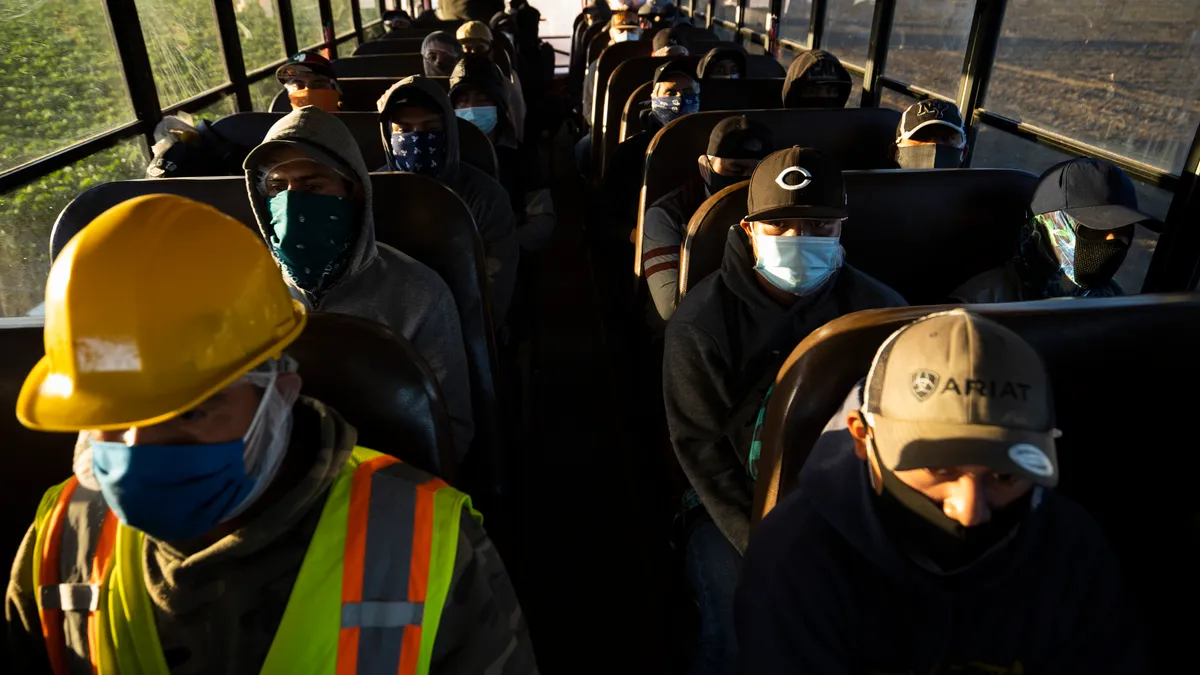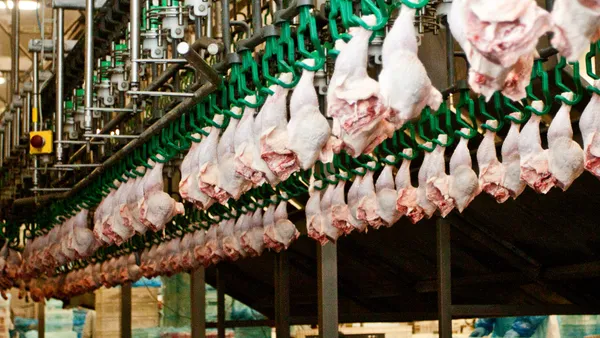Dive Brief:
-
The U.S. Department of Agriculture said Friday it will make up to $65 million available to help agricultural employers improve labor standards and attract more temporary farm workers from Guatemala and other Central American countries.
-
Businesses are eligible to receive a maximum of $2 million in funding if they commit to fulfilling all baseline requirements of the H-2A visa program and pledge additional worker benefits and protections. Money can be used across two agricultural production seasons.
-
Farms that plan to recruit workers from Guatemala, Honduras and El Salvador are more likely to receive grants. The USDA said the pilot will help address a shortage of farm labor while improving working standards and expanding regular migration pathways for workers in the Northern Triangle.
Dive Insight:
Hundreds of thousands of asylum seekers have fled Central American countries in the past few years, with the majority risking death to reach the U.S. and escape poverty and worsening gang violence.
Countries from across North and South America came together in 2022 and reached voluntary commitments to address the crisis and establish regular migration pathways. As part of its pledge, the U.S. aimed to expand legal migration pathways through the H-2A visa program.
The USDA’s pilot, called the Farm Labor Stabilization and Protection Pilot Program, incentivizes businesses to recruit from Northern Central American countries and make strong commitments around pay, transparency and accountability.
“Our country is facing growing agriculture workforce challenges … At the same time, record numbers of people are interested in living and working in the United States, including from Northern Central America,” USDA Secretary Tom Vilsack said in a statement. “This pilot should be a win for everyone along the agricultural supply chain, from the field to the dinner table.”
The launch of the pilot program comes a little more than a week after the Biden administration rolled out proposed reforms to the H-2A program, including new rules to enhance enforcement against businesses that violate employment standards.











